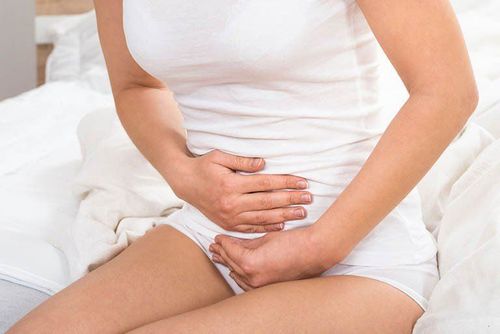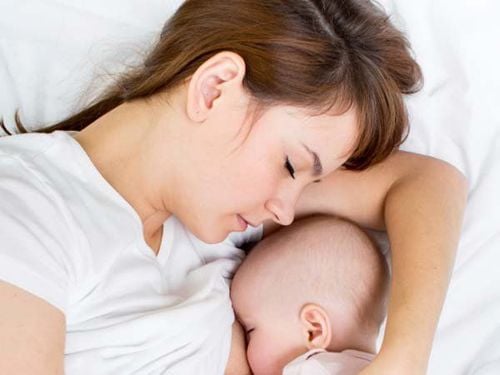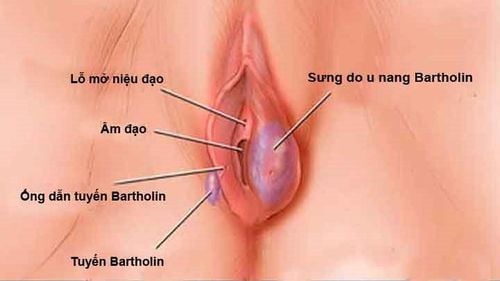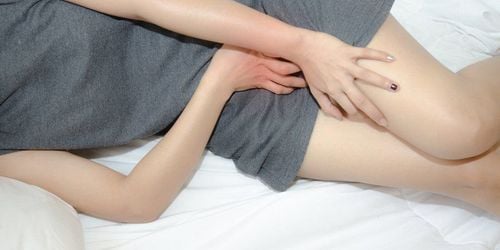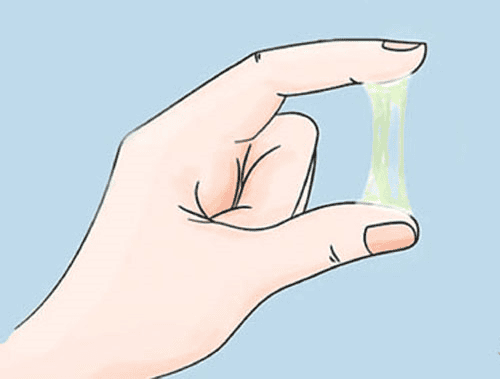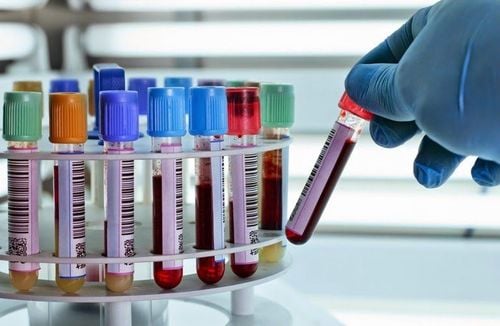This is an automatically translated article.
Menstruation is considered a favorable condition for pathogenic bacteria to grow. With the opening of the cervix, bacteria can easily enter the vagina and uterine cavity and cause infection here. Therefore, girls in puberty and menstruating women need to know how to properly clean the private area to minimize the risk of vaginal infections.1. Some problems related to the menstrual cycle
Currently, the age of puberty in children is decreasing, leading to early puberty in girls becoming common. During this period, children experience anxiety, shyness, and confusion. Therefore, girls need more careful care instructions from their mothers when going through this period. Some of the things to keep in mind at this stage for both girls and adult women include:1.1 Exercise Mode Girls in puberty and women on their period need light work. , walk lightly, do not practice sports that require a lot of strength. Sports that are encouraged to practice during menstruation include: light walking, bare-arm exercise, table tennis... And should avoid performing sports that use a lot of force such as weightlifting, swimming ...
During this period, women should not go far because the body gets tired very easily. If during the menstrual cycle, you have abdominal pain symptoms, you need to lie down, warm the lower abdomen to reduce pain.
1.2. Diet Women coming to the menstrual cycle need to eat a full range of nutrients. In which, it is recommended to increase protein, mainly animal protein contained in meats such as pork, beef, heart, liver, eggs and foods containing calcium to help the process of hemostasis as well as blood clotting. does better. At the same time, you should use these foods to help provide a full range of other nutritional components besides protein such as carbohydrates, fats, mineral salts, vitamins and fiber.
In addition, girls at puberty and women when it comes to the menstrual cycle need to increase the use of fruits, vegetables, tubers and fruits. These foods are considered ideal foods, especially sweet fruits that can help you reduce cravings for sweets and sugars. The tubers and fruits also help you reduce hunger and appetite, reduce fatigue significantly when going through this phase. Not only that, you should minimize the amount of caffeine, solid tea, carbonated soft drinks.
2. How to clean the private area on a red light day?
Hygiene during menstruation plays an important role in affecting the health and well-being of women in general and teenage girls in particular. Females need to be instructed by adults on how to clean the private area on red light days so that they can perform the correct actions to reduce the risk of infection.
Vệ sinh vùng kín trong kỳ kinh nguyệt giúp bạn bảo vệ sức khỏe vùng kín hiệu quả
In addition, during the menstrual cycle, the amount of blood flows continuously around the clock, sometimes even during rest or work. Menstrual blood usually does not clot but stays in the vagina. Even when they reach the vulva, they can still be deposited on the cord, making you feel uncomfortable and wet, itchy. Not only that, while urinating or having a bowel movement can increase the possibility of bacterial infection in the intimate area.
Therefore, girls going through puberty and women in this stage need to take a daily bath. Clean the intimate area at least 4 times a day, before changing the bandage, wash your hands.
Every day, depending on the amount of menstrual bleeding more or less, you will wash the private area, dry it and change the bandage. Water used to wash the intimate area must use clean water. Do not use water that can cause bacterial infection for the intimate area such as pond water, river water.
In the cold season, it is necessary to mix warm water to clean the private area. When cleaning the intimate area during menstruation, it is best to use a faucet or running water to wash it off. Do not use the basin to soak the intimate area and wash. You can use a little more neutral soap or gynecological solution to wash the intimate area according to the instructions of the gynecologist.
After washing, you need to pay attention to clean or dry the intimate area. The process of cleaning the intimate area is done regularly, especially after urinating or having a bowel movement.
In addition, you should keep your underwear dry. If you need to urinate or urinate, you should change your underwear 2-3 times a day. Do not wear wet underwear to create a humid environment for harmful bacteria to grow.
You have to change tampons regularly during your period. The use of tampons during the menstrual cycle is necessary for menstrual blood to penetrate, not to drain out and cause unhygienic. In addition, you should also note that used tampons should be carefully wrapped and thrown in the trash. You should change the birthing belt regularly, at least 3 times a day.
You should also not do vaginal douching, just clean the outside.
During the menstrual cycle should not perform intercourse because at this time blood is known as an easy environment for infection.
In addition, you also need to pay attention to your diet, sleep, rest and light work. You should use pants that are too loose and airy, and avoid thick and tight clothes, especially on hot days.
3. Prevention of vaginal diseases
Women's private area as a rather sensitive and important part for health should be cleaned and cared for properly. This will avoid the risk of causing inflammation, bad-smelling discharge ... or gynecological diseases.The use of cleaning solution is one of the ways to clean the private area during menstruation and daily. However, currently on the market there are quite a lot of intimate hygiene solutions that contain many synthetic substances and chlorine that are harmful to health. Moreover, many products cannot even be reused, causing waste and environmental pollution. Therefore, you should learn and choose natural vaginal hygiene products that are both healthy and easy to use and do not affect the environment.

Sử dụng dung dịch vệ sinh là cách vệ sinh vùng kín hiệu quả, an toàn
Disposable feminine hygiene products - including tampons, tampons or tampons. Reusable feminine hygiene products such as menstrual panties, menstrual cups, etc. Feminine hygiene products include products used to clean the vulva area or inside the vagina. It can be said that, during menstruation, bacteria can move from the vulva, vagina and back up to the uterus and fallopian tubes, causing adverse effects on a woman's reproductive health. Therefore, hygiene during menstruation is important and necessary to avoid genital infections.




